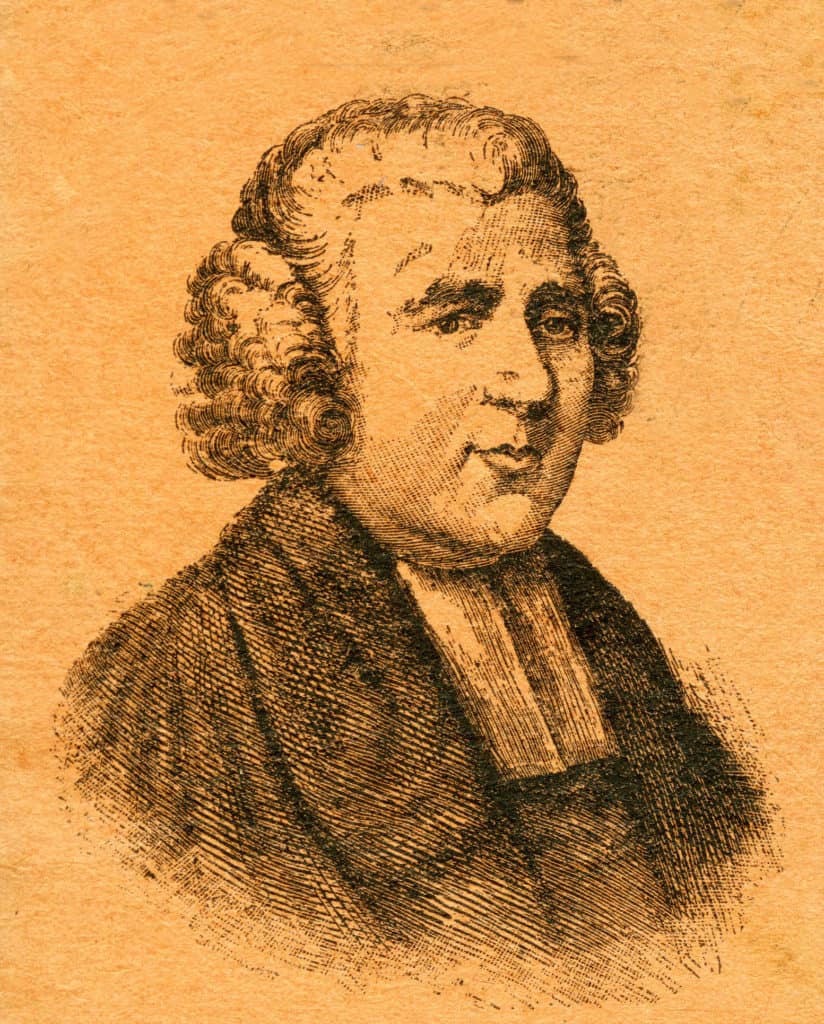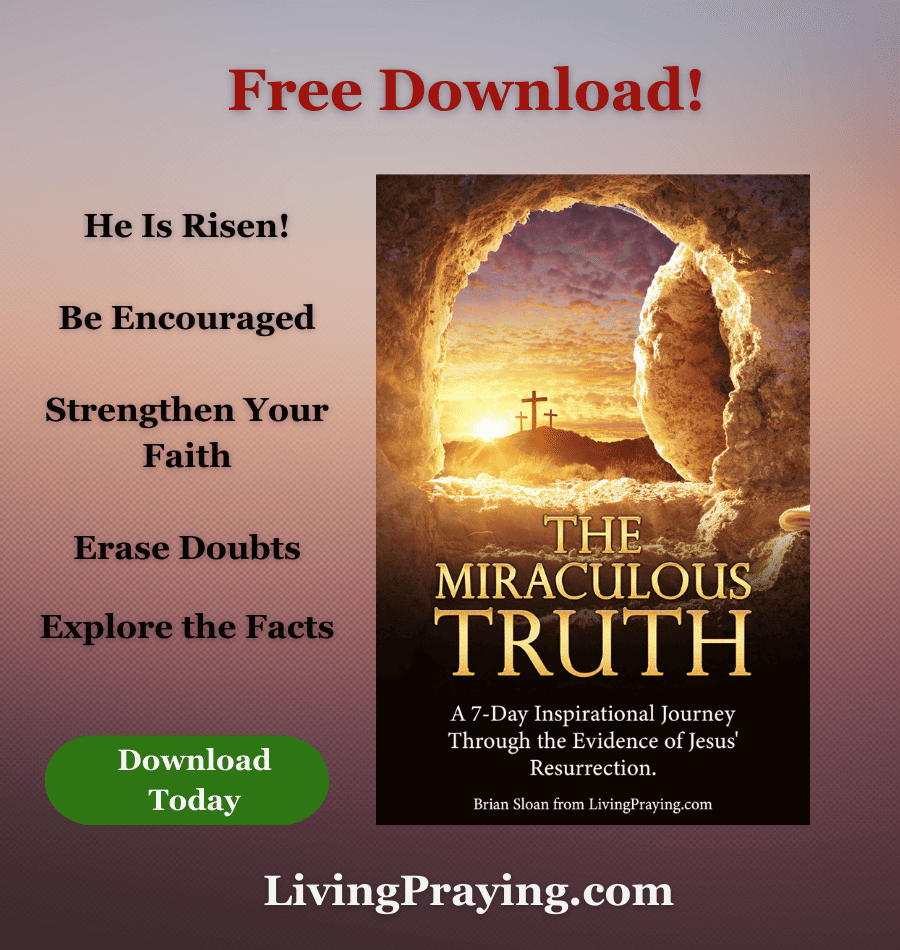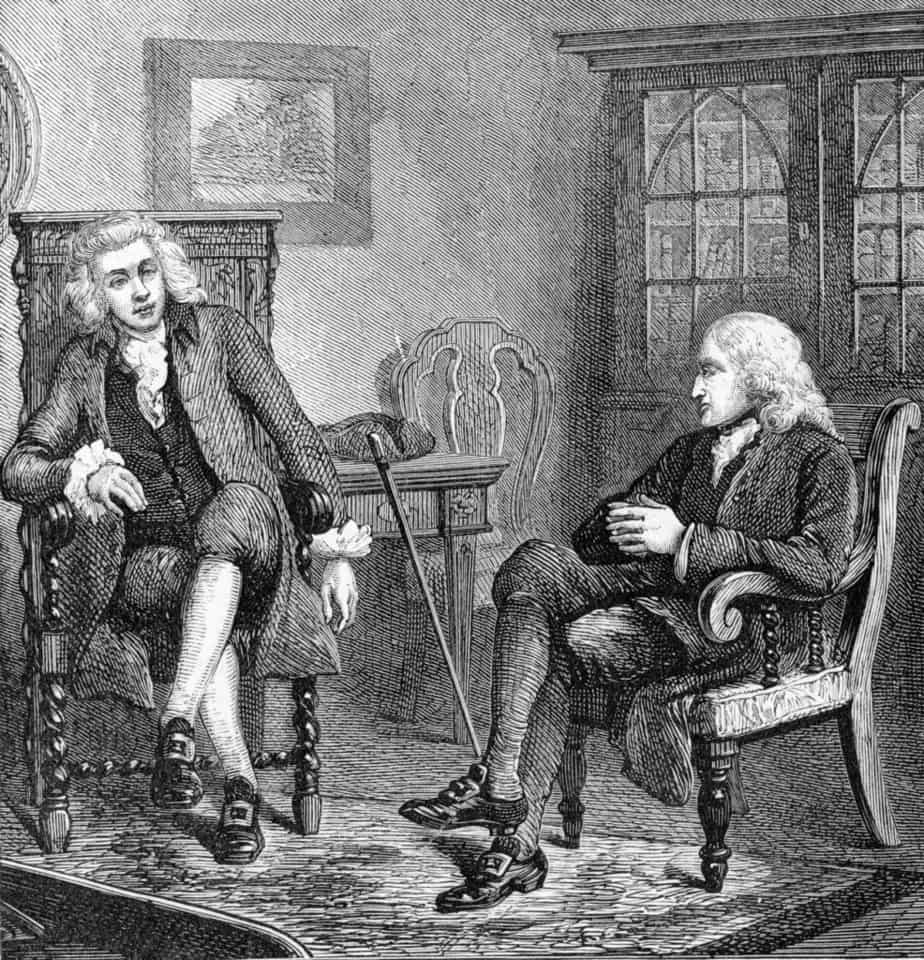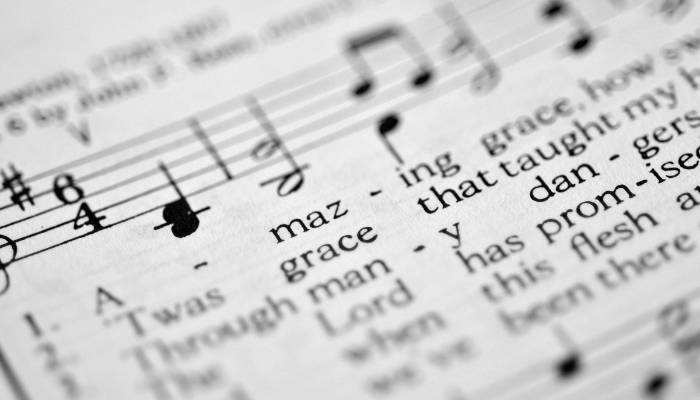There are some songs that are so popular, that they transcend the boundaries of genre and language. “Amazing Grace” is one of those songs. The story of the song and the man behind the song is certainly a story of God’s amazing grace.
This hymn has been sung by Christians and non-Christians alike for a couple of centuries now, and its popularity continues to grow. But what is the story behind this famous song? What is the meaning of Amazing Grace? Let’s take a look at the history of this song and find out.
Some people point to “Amazing Grace” as the most popular and beloved hymns of the last couple of centuries. At a minimum, it’s one of the top hymns ever. It is performed millions and millions of times per year and has been officially recorded on over 11,000 albums, which is probably a low number. People of many races, creeds, and colors have sung the words to this song even if they didn’t understand the meaning of the song.
“Amazing Grace” was penned by John Newton, a minister who played a major part in abolishing the slave trade in England. However, earlier in his life, Newton actively participated in and profited from the slave trade. It was only after he genuinely encountered God and after many years of God working in his life, that he penned the words, “Amazing grace how sweet the sound that saved a wretch like me.”
Who could more truthfully pen the words than someone who had been a part of such sinful practices but was redeemed by Jesus Christ? John Newton was certainly an example of how God can change a life that had been filled with evil into one that can help accomplish great good.
The details of the life of John Newton vary from book to book and blog post to blog post, but the primary issue is agreed upon. John Newton was a rebellious, hard-nosed, obscene man who profited from the horrific slave trade but was transformed by God’s grace. He eventually became a dedicated minister of the gospel who was instrumental in getting the slave trade abolished.
The Meaning of Amazing Grace: Exhibiting the Truth of God’s Grace
We will take a look at some of the high (or low) points of John Newton’s life that affected his writing of this great hymn. However, I don’t want us to overlook the broader point as we do.
Primarily, we see an example of a story where a man was truly affected and changed by God’s grace – which is always genuinely amazing. Grace is generally defined as “God’s unmerited favor” and is a centerpiece of the Gospel of Jesus Christ. Without grace, we all would be hopeless.
Without grace, this former slave trader would not have submitted his life to Jesus Christ to the point of becoming a pastor. He would not have repented and served his fellowman. Without this amazing grace, John Newton would not have helped to eradicate the slave trade from which he had profited in the earlier part of his life.

The Staggering Effects of the “Amazing Grace” Lyrics
You will find that the meaning of Amazing Grace in terms of the song lyrics affects so many people. It’s the testimony of someone who was undone, out, at the end of their rope – even if much of it was because of his own action. However, through dangerous times of trial, temptations, and hardships – God delighted in surprising John Newton with something that he could never deserve – His awesome grace.
Millions upon millions of people can relate to that story. They can relate to the meaning of “Amazing Grace.” No, most people have not been slave traders. However, the fact is that there are many kinds of evil in this world. To the degree that we inherited the sin of Adam, we all checked into planet Earth as sinners.

Maybe we haven’t displayed our sin in something so atrocious as trading slaves. However, people who ultimately come to Christ are convicted that they are sinners and “fall short of the glory of God” (Rom. 3:23) and need the forgiveness of a Savior.
The meaning of “Amazing Grace” or its underlying principle is that no matter how we have sinned, we can’t fix it ourselves. We can’t do enough righteous deeds to erase even one sin. If we receive His grace, it’s God’s unmerited.
Jesus came to us to bring “grace and truth (John 1:17).” The truth is proclaimed that Jesus is the Messiah who has come to make a way for all sinners to be forgiven. Grace is proclaimed in that you have no power to erase those sins – only to seek God’s forgiveness. His forgiveness can be granted because of His grace.

The Meaning Of Amazing Grace: Newton’s Beginnings
John Newton’s story began in London where he was born in 1725. He was born to a Puritan mother who had a profound impact on John spiritually. She taught him to read and memorize scriptures and hymns and faithfully took him to church. This would weigh heavily in the story of John Newton. John’s father, a merchant ship captain, was on voyages at sea that typically would last two or three years.
When Newton’s mother passed away from tuberculosis during one of his father’s voyages, John was put in the care of some of his mother’s friends in Kent (the Catlett family).
As time went on John’s father remarried and John was placed in a boarding school but seemed to stay in contact with the Catlett family especially because of their daughter. Mary Catlett was a centerpiece in John’s life and through all that he went through he had a desire to return to her. She would eventually become John’s wife.
Beginning when John was 11 years old, for the next 5 or 6 years, his father began taking him on sea voyages. These times were hard lessons where he learned the rigors of seamanship. However, in the times between the sea adventures, his stepmother apparently did little to discipline John and he found himself in much trouble as an adolescent.

Meaning Of Amazing Grace: Close Calls
Through his young days of recklessness, drinking, and failing to find peace, he continued to find trouble. In these times we could probably find occasions where he might have gleaned “through many dangers, toils and snares.” The lyrics of the song speak of John’s life as he was continuously spared from life-threatening circumstances.
He narrowly missed a terrible injury as he was thrown from a horse just barely missing some sharp stakes. On another occasion, he was late to get onto a small boat carrying some companions to a ship.
From the shore, he watched in horror as that boat overturned and all of the passengers drowned. He also had a narrow escape after getting lost in a swamp in the jungles of Africa. Newton had not only been spiritually lost in his life but had been physically lost as well.
He acknowledged many times when God could have taken his life, but by His grace allowed him to live. During those times Newton was overtly rebelling against God. Even those slave traders for whom he worked looked upon him as being incredibly obscene with his language.
I can’t imagine slave traders being surprised at the obscenities of another! (I just say this to point out that this was no minor miracle that brought John Newton to proclaim Jesus as Lord).
There were times when he felt guilt or conviction about his actions. He fell into temptation time after time, but would rebound, and resolutely try to live as his mother had taught him. He would temporarily try to attend to the spiritual matters in his life as he had been taught as a child – only to fail again.
One of the many things that Newton eventually regretted was that, in his times of rebellion against God, he would dismiss or make fun of those who might have true faith in God. Newton had made the statement, “I often saw the necessity of religion, as a means of escaping hell; but I loved sin, and was unwilling to forsake it.”
So, time and again he would return back to his ways of rebellion.

Amazing Grace – Newton Continues at Sea
John eventually was forced into being a midshipman on the HMS Harwich at the age of 19. He later rebelled at that, deserted, and was caught, placed in irons, and publically whipped on board the ship. He was then demoted to the rank of a common seaman.
It is said that after this happened he became deeply depressed and even desired to throw himself overboard at times. He also thought of taking the life of the captain of the ship who had so cruelly humiliated him.
Eventually, his situation changed again as the captain of the ship swapped Newton for sailors who were on a ship that was en route to West Africa to buy slaves.
So, as his career in the evil slave trade began to ramp up, Newton was tempted by its financial profits more and more. It’s worth noting that there were merchants in those times who believed that slavery was justified and even permitted in the Bible as long as the slaves were treated well.
There are no justifications for being involved in the slave trade. However, there are some historical indications that Newton did not treat slaves in the harsh and brutal manner that some traders did. That might point to the fact that God was convicting John and drawing him to a place where he would eventually repent of his sins, come to God, and eventually fight the slave trade.
Newton found himself employed by an English slave trader near the coast of West Africa. The trader kept an African mistress who disliked Newton. During that time Newton was taken very ill with malaria and the trader’s mistress mistreated and abused John, almost starving him. In his mind, he had certainly been reduced to the definition of a “wretch” as was penned within the hymn.
Newton eventually recovered. However, later he found himself in another situation where the grace of God was there to protect him. Newton was on board a ship during a violent storm. He left the deck, however, a few moments later the sailor who had taken his place was taken overboard by a violent wave.
Later in his life, he recounted time after time when God had extended His grace to Him for some reason.

Meaning of Amazing Grace – Newton Back Home
It seems that in small increments John Newton began to realize that he was actually helpless and came to the point where he considered that it was only the grace of God that could save his wretched life.
Eventually, Newton arrived back home in the latter part of the 1740s. He wrote to the Catlett family and pleaded to be able to take Mary as his wife although at that time he could offer her no real financial security.
Mary replied to him saying that she would consider it. Unfortunately, because Newton felt he needed to gain something financially, he returned to the slave trade to better his financial situation.
Eventually, however, John Newton and Mary Cartlett were married in 1750. By that time Newton had definitely had a change of heart as a man. However, unbelievably he still hadn’t reached a conclusion that the slave trade was wrong – only that the slaves should not be harshly treated.
(Parenthetically, it’s hard to believe that the subject of slavery was not settled as immoral by this time, even by otherwise decent and civilized cultures. It simply shows us how the enemy of God can blind people to the evils he brings to the world).
Newton Back To the Slave Ship
Newton took the helm of a slave ship on its way to Africa. Although a far cry from repudiating the slave trade, he then encouraged those sailors with him to pray and required that his cargo of humans be treated humanely.
These actions may have signaled that Newton could be turning away from the evil of slavery. However, it would be 40 years before John Newton publicly challenged the sin of slave trafficking.

Newton Explores Christianity More Deeply
About 3 years after his marriage to Mary, Newton had a stroke and that kept him from returning to the sea. This eventually became another part of his spiritual journey.
In time Newton began to study and became more desperate to explore Christianity in a more serious and devout way. He truly experienced a conversion. He began to seek God to such an extent that eventually he believed that he was called to be a minister of the gospel.
John Newton obviously did not have a university degree and that meant that he could not be ordained as a minister in the normal way. However, letters that Newton had written about his spiritual conversion and transformation were read by the landlord of the Olney parish that Newton was offered the church and he was ordained in 1764.
Newton as a Hymn Writer
Since Newton was the curate (pastor, in our terms) in Olney ministerially he most likely would have been encouraged to write hymns as was the custom for many in the clergy. Newton had grown up hearing the hymns of the famous writer, Isaac Watts, and was also familiar with Charles Wesley. In fact, it was Charles Wesley’s brother, John (eventually founding the Methodist church) who encouraged Newton to go into the clergy.
In Olney, Newton met and became friends with the poet, William Cowper (pronounced Cooper), also a newly-born Christian. It would appear that these men encouraged each other in their hymn writing. The poem that became the world-famous, “Amazing Grace” hymn was most likely written in 1772 but not published until 1779. It was a part of a collection of hymns simply called The Oney Hymns. It had 348 hymns that had been written in a period of 10 years by Newton or Cowper.
It’s interesting to note that it seems that these men knew that they were not simply writing poetry. Their writing was done eloquently but in a simple fashion where the common man could express those words to God.

Finally Awakened To The Evil
During the time in which Newton’s faith became more mature, he was finally awakened to the sinfulness of slavery that people still somehow accepted. His remorse for the sin of being involved in the slave trade led him to be an ardent abolitionist. In 1785 Newton met with the politician, William Wilberforce. Having experienced a spiritual conversion of his own, Wilberforce was considering becoming a clergyman.
Apparently, Newton encouraged Wilberforce to remain in the political realm and pursue justice in that manner. Newton became and remained a spiritual mentor to Wilberforce for the next two decades.
In 1787, with Newton’s help, William Wilberforce founded the Society for Effecting the Abolition of the Slave Trade. This is what was referred to as the Anti-Slavery Society.
Finally, the Slave Trace Act 1807 was adopted by the UK parliament. It prohibited the slave trade in the British Empire. It did not abolish the practice of slavery, but it helped press other nations to consider abolishing their own slave-trading laws.
John Newton passed away on December 21, 1807. God once again showed him grace by allowing him to see his goal of having the slave trade abolished in the large British Empire.
Amazing Grace: The Melody
You might think that John Newton took the words and music to “Amazing Grace” and sang it in the Olney parish as we know it the song today. However, it might have only been recited without a melody, and if a melody was used it was not the one that we sing today. Even when it was published, the contemporary hymn books of the day didn’t include musical notation.
It is stated that over 20 musical settings of “Amazing Grace” circulated within about 60 years. Then an American composer, William Walker, put the words of “Amazing Grace” to the tune of a song called “New Britain.” “Amazing Grace has been sung to that melody ever since.
However, the lyrics of “Amazing Grace”, written by Newton with the “New Britain” melody didn’t appear until the shape notebook Southern Harmony in 1847.
It is quite amazing that in Britain, “Amazing Grace” didn’t receive very much attention as opposed to other hymns that were written by Newton. Yet, today it stands as one of, if not the most famous of all hymns in the world.
We couldn’t end without inserting the lyrics of this great hymn. You will undoubtedly wonder why the last verse of the song is not there. Although it’s a great and well-known verse, “when we’ve been there ten thousand years..,” this verse was not written by John Newton and was added by another author in the 1900s.
The story of John Newton’s life intersecting with God’s amazing grace demonstrates how God can use any of us. What is the meaning of “Amazing Grace?” Well, let the story of this who was involved in great evil, yet being rescued by God’s grace, challenge and encourage you. And, let the words of the great song inspire you.
Amazing Grace
Amazing grace! (how sweet the sound) That saved a wretch like me!
I once was lost, but now am found, Was blind, but now I see.
Twas grace that taught my heart to fear, And grace my fears relieved;
How precious did that grace appear, The hour I first believed!
Thro’ many dangers, toils and snares, I have already come;
‘Tis grace has brought me safe thus far, And grace will lead me home.
The Lord has promised good to me, His word my hope secures;
He will my shield and portion be, As long as life endures.
Yes, when this flesh and heart shall fail, And mortal life shall cease;
I shall possess, within the veil, A life of joy and peace.
The earth shall soon dissolve like snow, The sun forbear to shine;
But God, who called me here below, Will be forever mine.
Grace Is The Key
God’s grace is the key that unlocks the door of a relationship with Him. We encourage you to study about grace, read Bible verses about grace and soak up the wonderful grace of God like a sponge. It is truly Amazing!






Leave a Reply